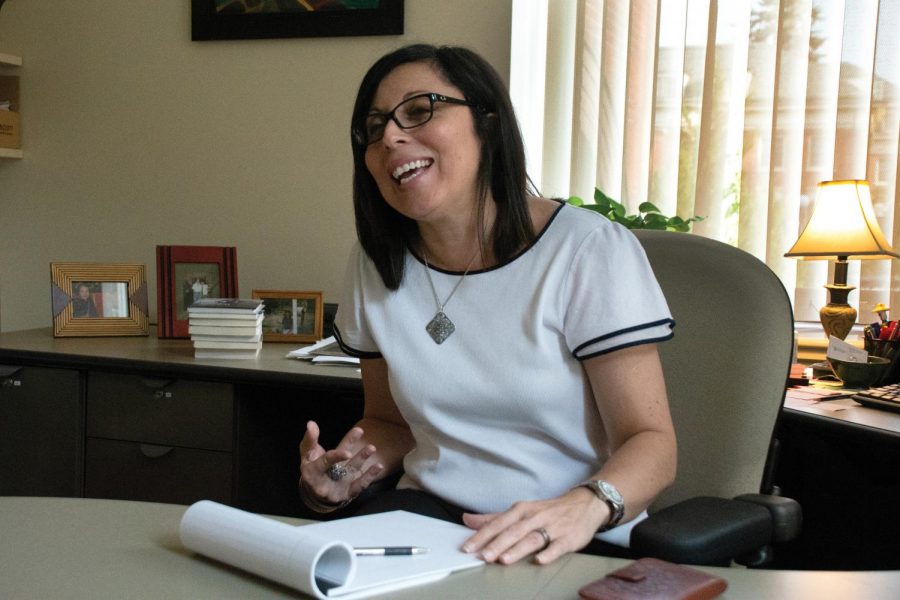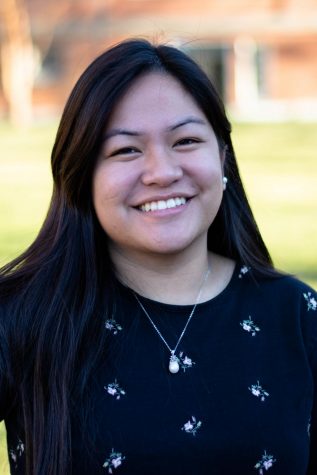Language classes cut due to low enrollment
PAIGE CAMPBELL | THE DAILY EVERGREEN
Director of the School of Languages, Culture and Race Dr. Carmen Lugo-Lugo discusses new changes to foreign language classes on Wednesday in Thompson Hall.
August 23, 2018
Several foreign language courses such as French, Arabic and Japanese were cancelled due to insufficient student enrollment.
WSU requires all courses to have a minimum of 15 students enrolled for the classes to operate, said Carmen Lugo-Lugo, director of the School of Languages, Cultures and Race, in an email to The Daily Evergreen. The department must comply with the university’s minimum enrollment mandate, she said, and the department is trying to avoid unnecessary expenses.
“We are trying to be fiscally responsible while simultaneously keeping the needs of students’ [majors and minors] in mind,” Lugo-Lugo said.
Students would have to take another language course or wait for specific classes to be offered again the following semester, she said.
In addition to the language courses, comparative ethnic studies classes were also cancelled due to low enrollment.
That low enrollment in some classes may have been caused by the two departments planning more classes than were needed, she said.
Sixty courses were under-enrolled in the beginning of June, Lugo-Lugo said. Twenty out of the 60 courses were cancelled, but 15 under-enrolled courses were kept when the school year started.
Out of the classes that were cancelled, some had no students, while the highest enrollment for a cancelled class was seven.
Alongside the language classes that are still offered this fall, tutoring services for foreign languages will continue this school year, said Jim Martin, director of the Language Learning Resource Center.
Currently, there are Spanish, French, Japanese, Chinese and Russian tutors, but they are still searching for more in German and Korean, he said.
Tutors are usually upperclassmen or native speakers, Martin said. The number for each language depends on the need.
“[The resource center is] kind of slow starting out in the semester,” he said. “I think some students just don’t realize they need a tutor until it might be a little too late.”






















